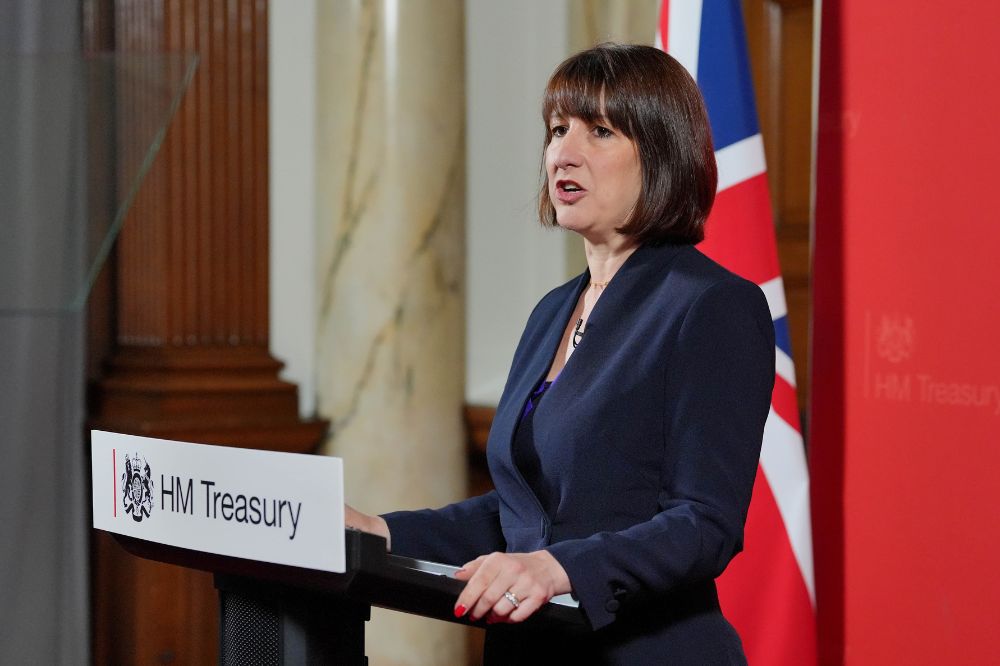Rachel Reeves warns of ‘difficult decisions’ to fix public finances
 Rachel Reeves has warned she will have to make “difficult decisions” as she seeks to “fix the foundations” of the public finances.
Rachel Reeves has warned she will have to make “difficult decisions” as she seeks to “fix the foundations” of the public finances.
The Chancellor is set to announce the date of her first budget before the Commons summer recess, as well as an assessment of the “spending inheritance” left behind by the Conservatives.
In the autumn budget, all eyes will be on whether Ms Reeves is forced to raise taxes or slash spending to avoid a squeeze on public services and to meet her fiscal rule to have debt falling as a share of gross domestic product in five years’ time.
In an interview with Bloomberg TV on Thursday, she said: “I’m not going to announce any tax breaks or tax changes without saying where the money is going to come from, and we will have a budget later this year.
“But I also just need to be really clear and honest about the scale of the challenge that we’ve inherited with the public finances.
“We’re going to have to make difficult decisions. We need to fix the foundations before we can start rebuilding things in Britain.
“But unlike the previous government, I am going to be honest about the scale of the challenge. I’m going to level with people.”
Labour is gambling on kick-starting economic growth to generate the tax receipts to avoid a return to austerity.
Ambition
Ms Reeves repeated Labour’s ambition to have the fastest-growing economy in the G7, but refused to put a number on the desired growth rate.
The Chancellor said the party’s plans to grow the economy “depend on businesses and investors choosing Britain as a place to invest”.
She pointed to the new Budget Responsibility Bill, introduced in the Commons on Thursday, as a means of delivering the economic stability required by investors.
The law forces ministers to consult the budget watchdog, the Office for Budget Responsibility (OBR), on major tax and spending changes in order to avoid a repeat of Liz Truss’s 2022 mini-budget which spooked investors and sparked a run on the pound.
The Institute for Fiscal Studies said the Bill was “broadly sensible but largely performative” as the Chancellor could keep to the promise of seeking OBR analysis “without any need for primary legislation”.
IFS senior research economist Ben Zaranko said: “The main impact of the Bill, if there is one, will be to modestly increase the powers of the OBR vis-a-vis the Treasury.”
Asked whether Labour’s plans had been welcomed by investors, Ms Reeves said: “Absolutely…
“There’s no plans that I can draw up in my new office in the Treasury that are going to work unless we have business buy-in.”
Downing Street earlier said the outcome of the spending audit the Chancellor ordered Treasury officials to produce would come “shortly”.
The Prime Minister’s spokesman indicated the OBR has not been given the required 10 weeks’ notice to provide an independent forecast ahead of the next budget.
“The Treasury would announce that in the usual way,” the official said.
Support our Nation today
For the price of a cup of coffee a month you can help us create an independent, not-for-profit, national news service for the people of Wales, by the people of Wales.





Levelling up may have been rebranded but the idea of boosting underperforming regions to boost the whole economy can’t wait. It doesn’t need money, it needs permanent employer and business tax changes to make regions with below average GDP per capita more attractive to investors. Tax changes that phase out only when the gap with London closes. Devolving corporation tax would be one option.